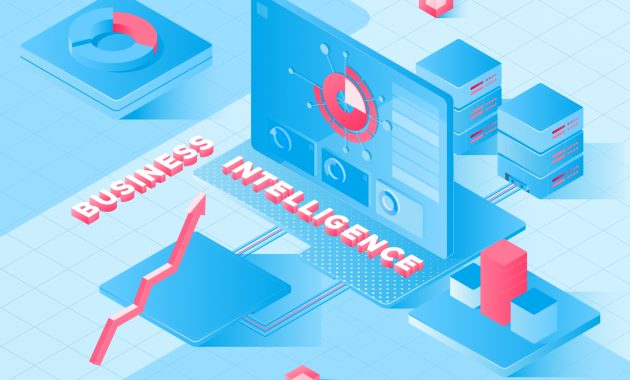
Improve Strategy with Business Intelligence Software: A Deep Dive
In today’s data-driven world, businesses are drowning in information. The key to success lies not just in collecting data, but in understanding it. This is where business intelligence (BI) software comes into play. It transforms raw data into actionable insights, enabling organizations to make informed decisions and improve strategy. This article delves into the capabilities of business intelligence software, its benefits, and how it can be leveraged to drive strategic growth. The focus is squarely on how to effectively improve strategy with business intelligence software.
Understanding the Fundamentals of Business Intelligence
Business intelligence encompasses the technologies, applications, and practices used to collect, integrate, analyze, and present business information. It’s a process that helps businesses understand their performance, identify trends, and make data-driven decisions. The core components of business intelligence include data collection, data warehousing, data analysis, and reporting.
Data collection involves gathering data from various sources, such as customer relationship management (CRM) systems, enterprise resource planning (ERP) systems, social media, and market research. Data warehousing is the process of storing and organizing this data in a central repository. Data analysis involves using tools and techniques to identify patterns, trends, and anomalies within the data. Finally, reporting involves presenting the findings in a clear and concise manner, often through dashboards, reports, and visualizations.
The Transformative Power of Business Intelligence Software
Business intelligence software provides the tools and functionalities needed to execute the business intelligence process effectively. These software solutions often offer a range of features, including data integration, data analysis, data visualization, and reporting capabilities. The benefits of using business intelligence software are numerous and can significantly impact a company’s bottom line.
- Enhanced Decision-Making: Business intelligence software provides a 360-degree view of the business, enabling informed decisions based on data rather than gut feelings.
- Improved Efficiency: Automation of reporting and analysis tasks frees up valuable time for employees to focus on more strategic initiatives.
- Cost Reduction: By identifying inefficiencies and optimizing processes, business intelligence software can help reduce operational costs.
- Increased Revenue: Understanding customer behavior and market trends allows businesses to identify new opportunities and drive revenue growth.
- Competitive Advantage: Data-driven insights enable businesses to stay ahead of the competition by making proactive decisions.
Key Features and Capabilities of BI Software
Business intelligence software offers a wide array of features that cater to different business needs. These features work in tandem to help organizations improve strategy. Some of the essential capabilities include:
- Data Integration: The ability to connect to and integrate data from various sources, including databases, spreadsheets, and cloud platforms.
- Data Analysis: Advanced analytical capabilities, such as statistical analysis, predictive modeling, and data mining.
- Data Visualization: Creating interactive dashboards, charts, and graphs to present data in a clear and understandable format.
- Reporting: Generating custom reports and automating the reporting process.
- Mobile Access: Providing access to data and insights on mobile devices, enabling users to make decisions on the go.
- Collaboration: Facilitating collaboration among team members through shared dashboards and reports.
Strategic Applications of Business Intelligence Software
The applications of business intelligence software are vast and span across various departments and industries. Companies can use these tools to improve strategy in several key areas. Here are a few examples:
Sales and Marketing
Business intelligence software can help sales and marketing teams understand customer behavior, identify market trends, and measure the effectiveness of marketing campaigns. This leads to better lead generation, higher conversion rates, and increased sales. By analyzing sales data, businesses can identify top-performing products, optimize pricing strategies, and personalize customer experiences. This directly contributes to efforts to improve strategy.
Operations and Supply Chain
In operations and supply chain management, business intelligence software can be used to optimize processes, reduce costs, and improve efficiency. By analyzing data on inventory levels, production schedules, and delivery times, businesses can identify bottlenecks, streamline operations, and reduce waste. This results in faster delivery times, lower operational costs, and improved customer satisfaction. Applying this to the supply chain helps to improve strategy.
Finance and Accounting
Business intelligence software can provide finance and accounting teams with real-time insights into financial performance. By analyzing data on revenue, expenses, and profitability, businesses can identify areas for improvement, make informed investment decisions, and ensure compliance with regulations. Accurate financial data is crucial to improve strategy.
Human Resources
Human Resources departments can use business intelligence software to analyze employee data, track performance, and identify areas for improvement. By analyzing data on employee turnover, training effectiveness, and employee satisfaction, businesses can make informed decisions about talent management, employee retention, and workforce planning. This helps to improve strategy from within.
Choosing the Right Business Intelligence Software
Selecting the right business intelligence software is crucial for success. The choice depends on the specific needs and requirements of the business. Here are some factors to consider when evaluating business intelligence software:
- Ease of Use: The software should be user-friendly and easy to navigate, with a clear and intuitive interface.
- Data Integration Capabilities: The software should be able to connect to and integrate data from various sources.
- Analytical Capabilities: The software should offer a range of analytical features, such as statistical analysis, predictive modeling, and data mining.
- Data Visualization Capabilities: The software should allow users to create interactive dashboards, charts, and graphs.
- Reporting Capabilities: The software should enable users to generate custom reports and automate the reporting process.
- Scalability: The software should be able to scale to accommodate the growing needs of the business.
- Cost: The software should be affordable and provide good value for the investment.
- Support: The vendor should provide adequate support and training to ensure the successful implementation and use of the software.
Implementation and Best Practices
Implementing business intelligence software requires careful planning and execution. Here are some best practices to ensure a successful implementation:
- Define Clear Objectives: Clearly define the business goals and objectives that the software will help achieve.
- Identify Data Sources: Identify all the data sources that will be used to populate the software.
- Clean and Prepare Data: Ensure that the data is clean, accurate, and properly formatted before importing it into the software.
- Choose the Right Software: Select the software that best meets the needs of the business.
- Train Users: Provide adequate training to users on how to use the software.
- Monitor and Evaluate: Regularly monitor the performance of the software and evaluate its effectiveness.
- Foster Data Literacy: Cultivate a culture of data literacy within the organization to empower employees to make data-driven decisions.
The Future of Business Intelligence
The future of business intelligence is bright, with continuous advancements in technology and an increasing focus on data-driven decision-making. Emerging trends include:
- Artificial Intelligence (AI) and Machine Learning (ML): AI and ML are being integrated into business intelligence software to automate tasks, provide deeper insights, and enable predictive analytics.
- Cloud-Based BI: Cloud-based business intelligence software is becoming increasingly popular due to its scalability, flexibility, and cost-effectiveness.
- Self-Service BI: Self-service BI tools are empowering business users to access and analyze data without the need for IT assistance.
- Data Democratization: The trend of making data accessible to all employees, regardless of their technical expertise, is gaining momentum.
These trends will further enhance the capabilities of business intelligence software and enable businesses to gain a competitive advantage. The ability to improve strategy will become even more crucial.
Conclusion: Making Data Work for You
Business intelligence software is a powerful tool that can transform how businesses operate. By providing insights into data, it enables organizations to make informed decisions, optimize processes, and drive growth. By understanding the fundamentals, leveraging the right software, and following best practices, businesses can harness the power of data to improve strategy and achieve their goals. Embrace the data revolution and unlock the potential of your business with business intelligence software. Investing in the right BI solution is an investment in the future.
[See also: Related Article Titles]

